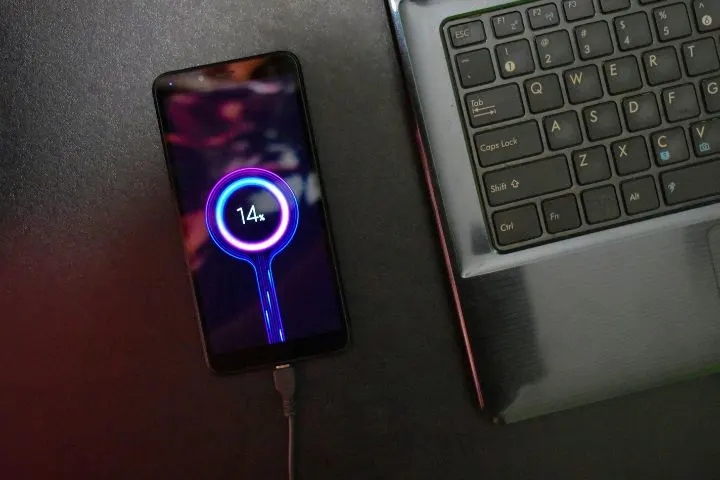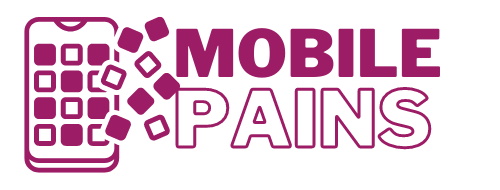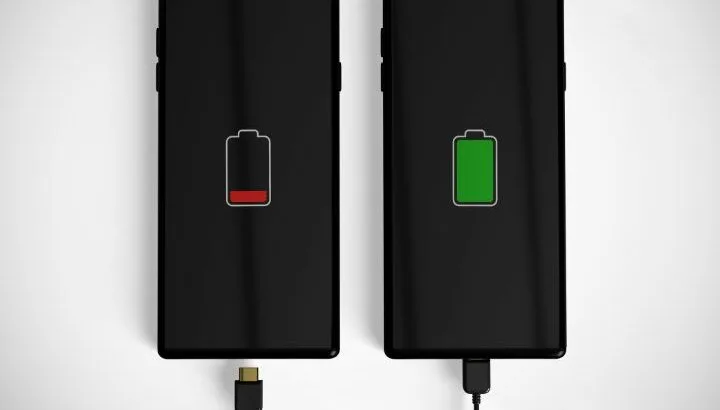Modern Li-ion batteries have a fixed amount of cycles before depletion and therefore, it is imperative to adopt good charging habits.
Contrary to common myths, it is a good idea to charge your phone multiple times a day. The Li-ion batteries do not need to be fully recharged – the high voltage required to do that actually puts more stress on the battery.Frequent, short charging sessions are the best way to prolong your battery life.
Read on to find out about good charging habits that you should adopt, and smart tips for how to prolong your battery life.
- Is it bad to unplug your phone then plug it back in?
- Does trickle charging reduce battery life?
- Should I charge my phone every night?
- What is the best percentage to charge a phone?
- Should I plug in my phone with a car charger every time I drive?
- How long should your phone battery last in a day?
- Is it bad to unplug your phone before fully charged?
- Is it bad to leave your phone plugged in for a week?
Is it bad to unplug your phone then plug it back in?
Unplugging and plugging does not affect modern batteries. You can charge your phones as many times as you want within a day.
This is because the modern Li-ion batteries do not suffer from the “Memory effect” like the old NiMH batteries – where if you keep recharging the phone to a certain level without fully draining the battery, it will only remember that certain level and charge only to that extent.
Li-ion batteries have a fixed amount of life cycles and it doesn’t really matter whether you charge your phone from 0 to 100% and drain it or charge 4 times a day to 25% because that is still counted as 1 cycle. Plugging your phone several times a day is recommended.
Does trickle charging reduce battery life?
Modern smartphones don’t actually have a “trickle charging mode” and most of the time, the charging speed depends on the power adapter and the USB cable that you are using.
It’s not the charging speed that affects the battery life but the temperature of the battery whilst charging.
So, as long as you’re keeping the temperature of the phone at a reasonable level, it doesn’t really matter whether you are trickle charging or fast charging.
You can do so by charging your phone in short sessions and also, removing the back-cover (if you are using one) when charging.
Even if you use a trickle charger, most come with an automatic shut-off, meaning the charger will automatically stop working when your phone is fully charged, thus leaving the battery life unaffected.
Should I charge my phone every night?
Charging a phone overnight is a bad idea and almost every top smartphone manufacturer including Samsung and Huawei suggests against it.
Every time you charge your phone to 100% a full cycle is counted and the Li-ion batteries only last for a specific cycle count. While modern batteries are smart enough to stop charging once they reach 100%, the problem is that every time the charge drops to 99% again, the phone will start charging again. This will affect the battery adversely as it will use a cycle unncessarily.
If you have no option but to charge your phone at night then the best thing you can do is use a smart plug in this case and schedule a timer to turn it off at a certain time.
See also: How Do I Make My iPhone Turn Off Automatically At Night?
What is the best percentage to charge a phone?
If you want to extend the battery life of your smartphone, it is a good idea to start charging as soon as the battery drops to 50% or less and unplug it in the early 90s.
For this particular reason, charging your smartphone for smaller periods is the best way to keep the battery life healthy. It is a good idea to never let the battery drain completely.
Several studies have shown that charging your battery to full capacity can actually do more harm than good. Experts recommend to try and keep the battery charge between 20% and 80%.
Depending on the phone you own, a voltage of greater than 3.75V is required to charge the battery above 80%.he excessive volts can result in overheating the device which can result in battery decay.
In contrast, less voltage is needed to charge between 20-80%, which seems to be the sweet spot.
See also: Is It Bad To Charge iPhone In Low Power Mode?

Should I plug in my phone with a car charger every time I drive?
Despite the convenience, it is not a good idea to charge your phone during your commute and you should avoid it as much as possible.
Depending on the charger you are using, it may use more or less voltage (approx 12V for cigarette lighters . In both cases, you are actually damaging your smartphone’s battery since most smartphones require a 5V charger.
It is worth mentioning here some recent smartphones use high voltage adapters to charge the phone quickly but even with those phones, charging your phone with a car charger is not ideal.
The best way to do this is to only use the official products that come along with the phone.
How long should your phone battery last in a day?
The answer to this question depends on many factors including your smartphone model, the capacity of the battery, the battery age, and your usage.
However, in general, modern smartphones (from 2020 onwards) should last at least a day when charged fully and should give approximately 5-7 hours of screen usage with moderate usage and as the phone gets older, this screen usage declines constantly.
Is it bad to unplug your phone before fully charged?
No, it is not! In fact, it is actually a good thing to unplug your phone before it is fully charged. As mentioned above, one should try to keep the battery between 20-80%, and charging the battery to the full extent does more harm than good.
Although it is convenient to charge the phone 100%, the extra charge from 80% to 100% uses more voltage and ends up stressing the battery. In the long run, this will negatively impact the battery life.
Is it bad to leave your phone plugged in for a week?
Long charging sessions are extremely bad for the new Li-ion batteries and if you are leaving your phone plugged in for a week, you are actually setting up yourself for a disaster!
Even though the modern batteries are smart enough to stop charging when fully charged, the problem is that when the battery reaches 99%- the phone will automatically start charging and if left for a long time, the excessive heat produced due to this will affect the battery.

